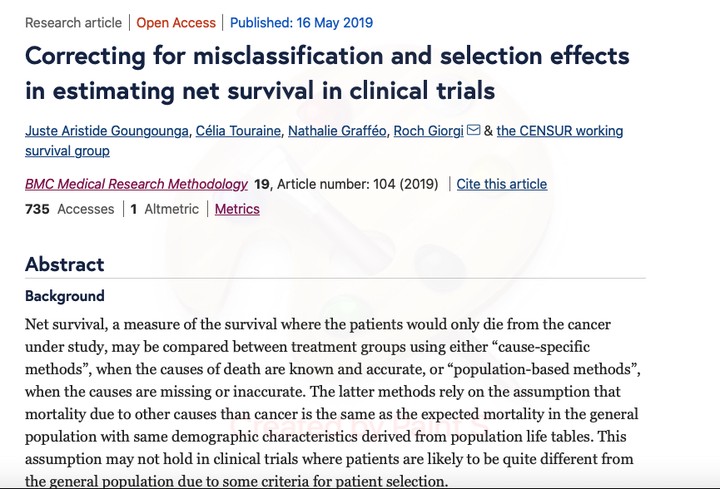Correcting for misclassification and selection effects in estimating net survival in clinical trials
 Image credit:
Unsplash
Image credit:
Unsplash
Abstract
(Background)Net survival, a measure of the survival where the patients would only die from the cancer under study, may be compared between treatment groups using either “cause-specific methods”, when the causes of death are known and accurate, or “population-based methods”, when the causes are missing or inaccurate. The latter methods rely on the assumption that mortality due to other causes than cancer is the same as the expected mortality in the general population with same demographic characteristics derived from population life tables. This assumption may not hold in clinical trials where patients are likely to be quite different from the general population due to some criteria for patient selection.(Methods) In this work, we propose and assess the performance of a new flexible population-based model to estimate long-term net survival in clinical trials and that allows for cause-of-death misclassification and for effects of selection. Comparisons were made with cause-specific and other population-based methods in a simulation study and in an application to prostate cancer clinical trial data. (Results) In estimating net survival, cause-specific methods seemed to introduce important biases associated with the degree of misclassification of cancer deaths. The usual population-based method provides also biased estimates, depending on the strength of the selection effect. Compared to these methods, the new model was able to provide more accurate estimates of net survival in long-term clinical trials.(Conclusion) Finally, the new model paves the way for new methodological developments in the field of net survival methods in multicenter clinical trials.